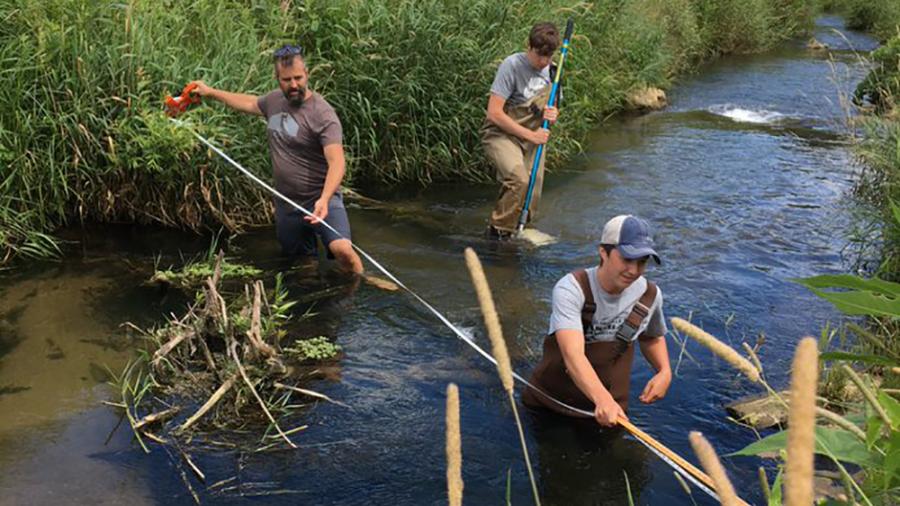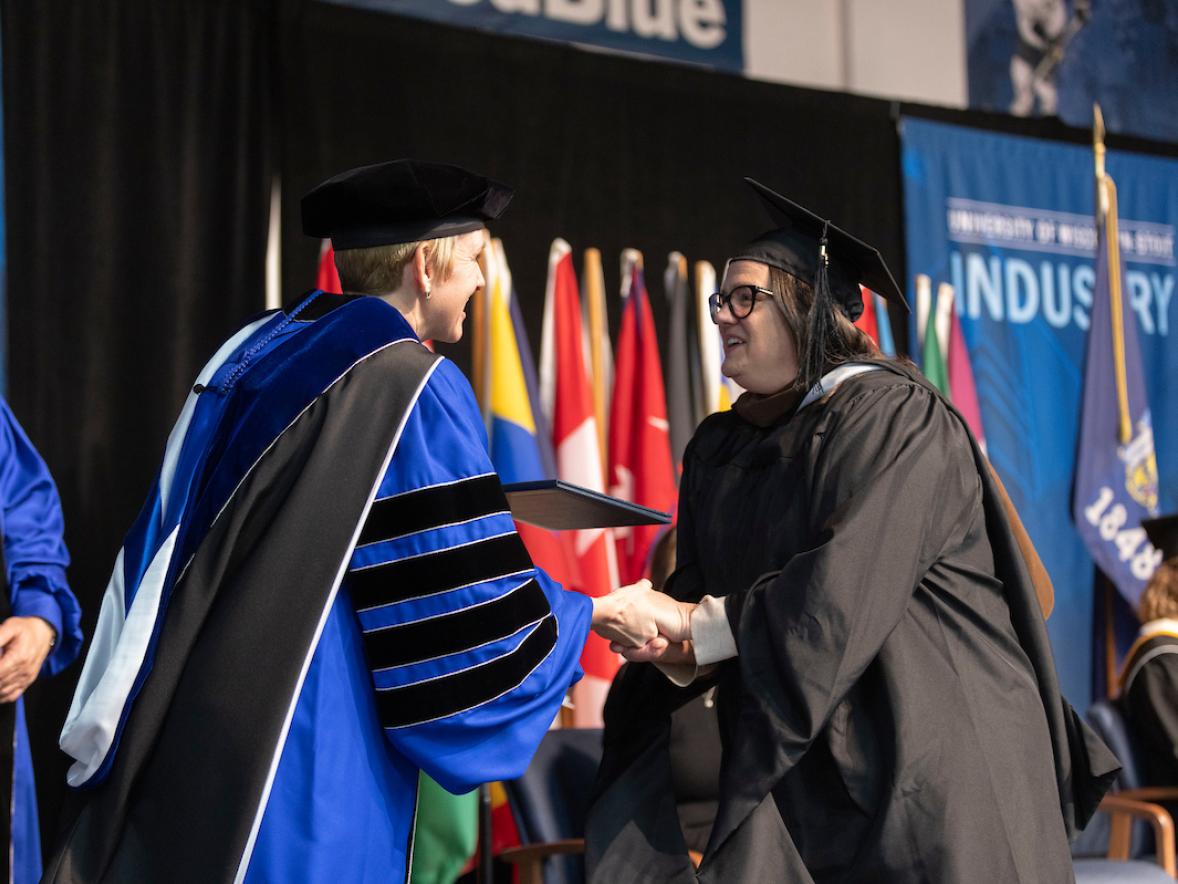By Freshwater Collaborative of Wisconsin
Rural communities experienced widespread population decreases between 2010 and 2020 for the first time in history, impacting jobs, health care, education and other services.
UW-Stout is in a unique position to help strengthen Wisconsin’s rural communities. Since 2021, the university has received multiple grants from the Freshwater Collaborative of Wisconsin to help faculty and students engage with and support local communities in western Wisconsin.
A key project was helping to establish the Center for Sustainable Communities. The goal of this emerging center is to help identify opportunities for research, service learning, outreach, community involvement and student experiences that strengthen environmental, social and economic sustainability in rural areas.

One of the first research projects to fall under the center’s umbrella is being funded by a two-year, $175,000 Innovation Grant from the Universities of Wisconsin. A multidisciplinary team of UW-Stout faculty will build a network of eight sensors that monitor temperature, humidity, wind, soil moisture, heat and other factors. The data collected will help farmers make decisions about their crops and increase their profitability.
Faculty are also working with faculty at UW-Madison and Grassland 2.0 to create a learning hub around agriculture issues in the Red Cedar Basin. Grassland 2.0 is a collaborative group of farmers, researchers, and public and private sector leaders who focus on restorative agricultural process. Their goal is to work together to increase farmer profitability while also improving water quality, soil health, biodiversity, and climate resilience.
“The learning hub was proposed by our local community,” says Tina Lee, professor in the social science department who is helping to lead the center and is working on the Innovation Grant. “We are getting community input from the agricultural sector on what the learning hub will look like.”
The center will go beyond farming, however. Keith Gilland, an associate professor of biology who teaches environmental science, leads the Red Cedar Basin Monitoring Group funded by the Freshwater Collaborative. He and his students work with Trout Unlimited, Prairie Enthusiasts and the City of Menomonie to evaluate the effects of trout stream and prairie restoration.
“There’s a big component of what we’ve done with the Red Cedar Basin that’s rooted in the idea that for healthy, thriving rural areas it’s not just about farms,” he says. “We also need healthy natural environments. We need recreational activities and places people want to go to spend time.”
Gilland is exploring ideas to expand his research and partnerships through the center. He wants his research to improve conditions in Menomonie from an environmental standpoint while also getting more students involved in that work so they can get hands-on experience that trains them for the workforce.
As the center grows, it will become a central place where community members can tap into faculty expertise beyond water quality and create service-learning projects for students in a variety of areas from economics to healthcare to rural education.
“The goal is for people in the community to bring projects to us that they are interested in having done so that students could work on them,” Lee says. “This could become a one-stop shop for small communities in the area with a focus on improving both the natural environment and local economies.”
###






